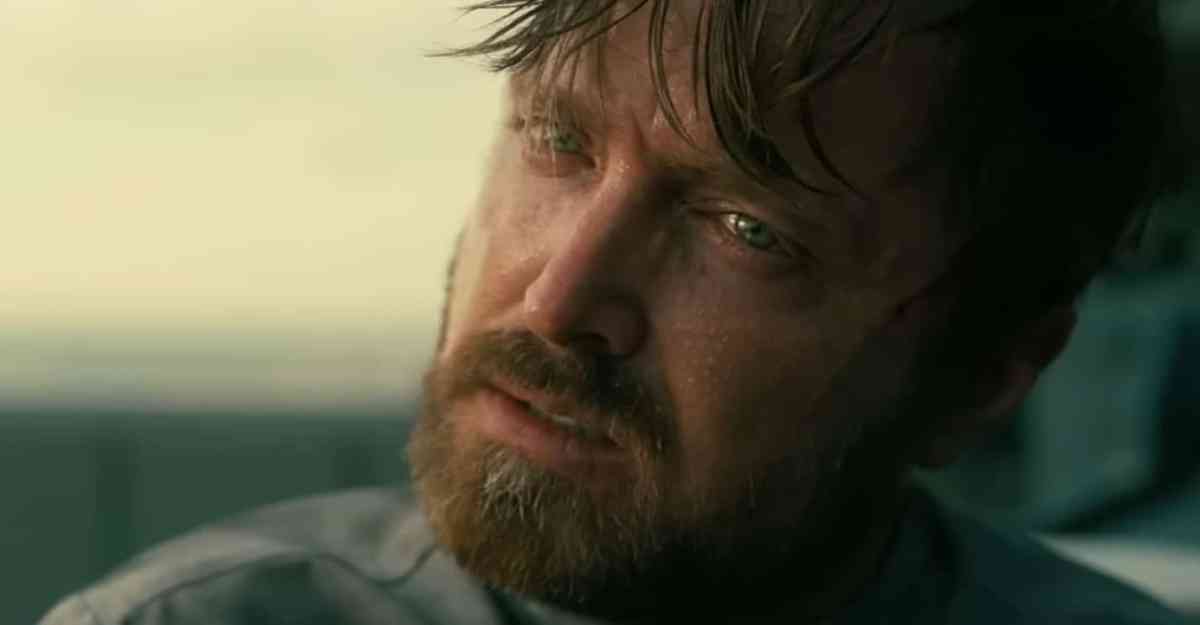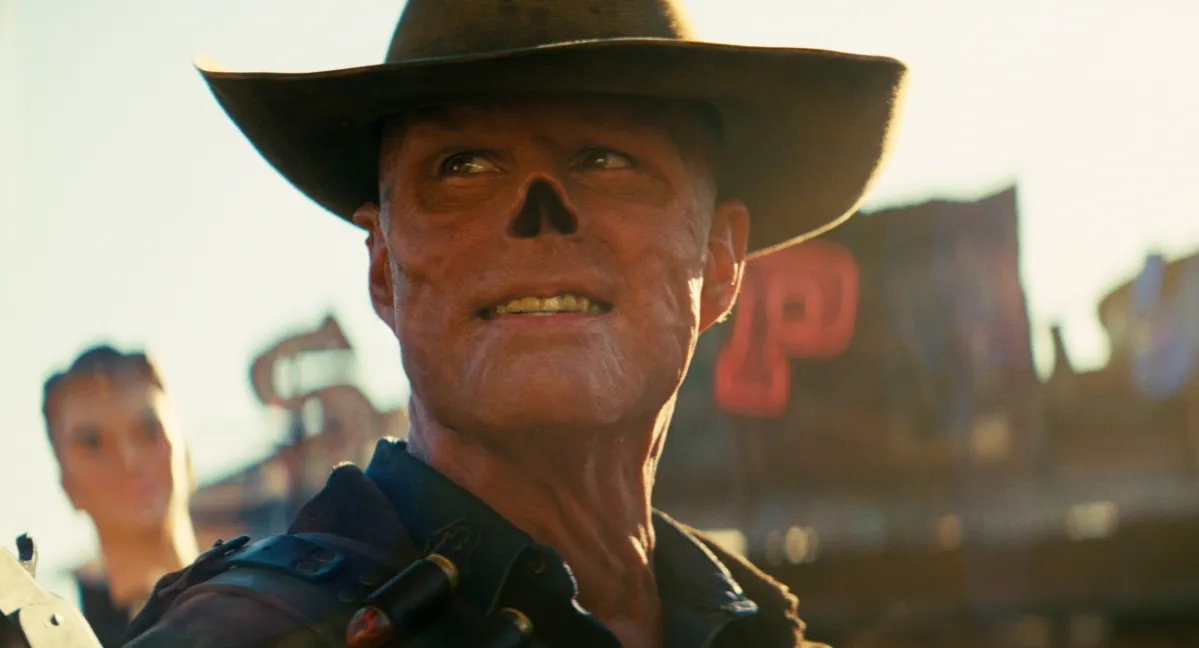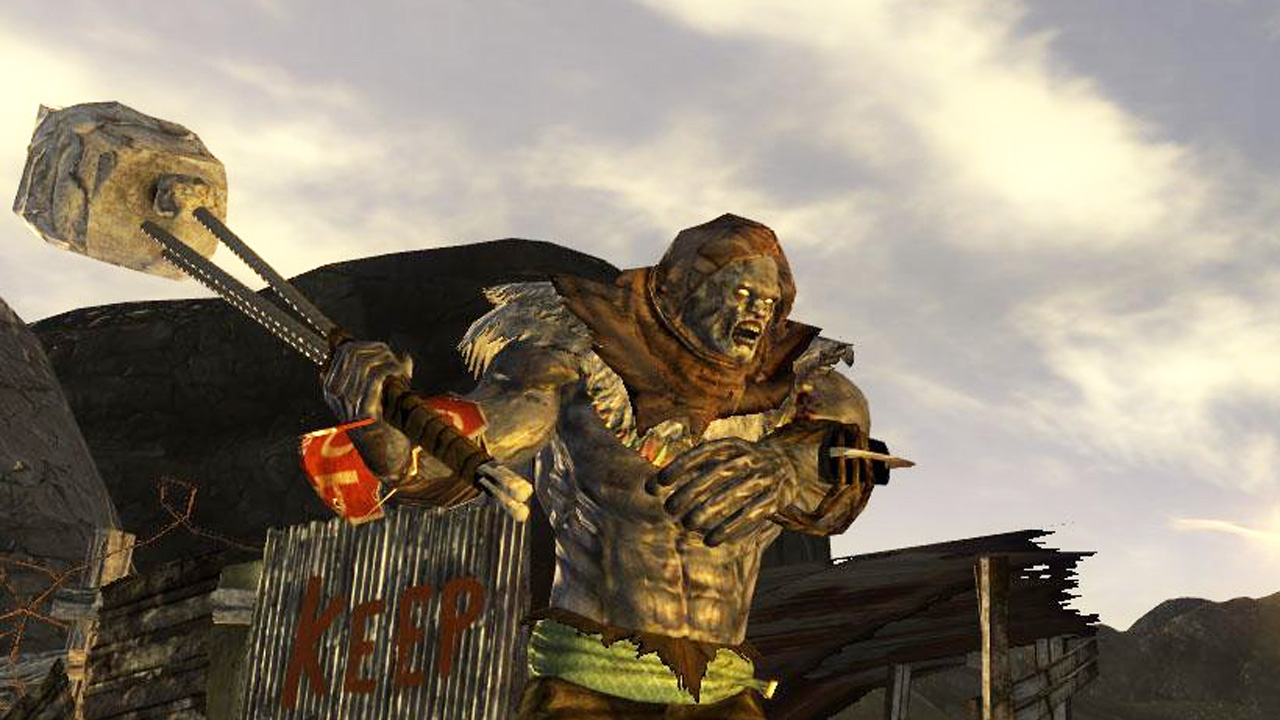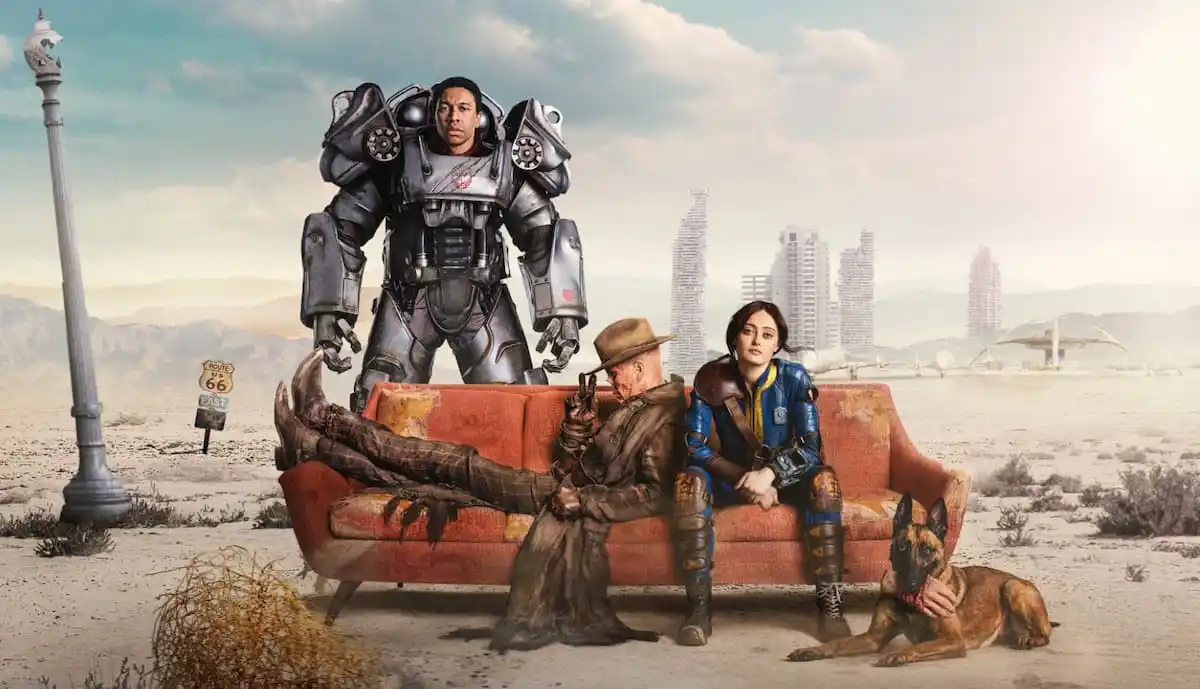This discussion and review contains spoilers for Westworld season 4, episode 1, the premiere.
Whatever narrative and thematic limitations Westworld might face, particularly in its later seasons, the show has always had a strong visual style.
The show’s plotting has become a little looser and haphazard in its third and fourth seasons, but Westworld can always rely on striking visuals to anchor the show. Westworld is not the best-looking or the most cinematic show on television. It isn’t even that its visual storytelling is especially clear. However, the show retains a clever and clear understanding of the power of iconography. It understands that certain images carry weight and how to use those images in interesting ways.
This is most obvious during the opening sequence of Westworld season 4. Narratively, what is happening is fairly straightforward in terms of the basic character motivations and genre framework: William (Ed Harris) has shown up to negotiate the purchase of a piece of real estate that the owners really don’t want to sell. Even if the show is characteristically oblique about what exactly William wants as his endgame, it’s still a fairly standard western genre trope.
Westworld plays with the iconography of these sorts of confrontations. The piece of real estate that William wants to buy is the Hoover Dam. It is a quintessential piece of Americana. Joseph Stevens described it as “the great pyramid of the American West, fount for a twentieth-century oasis civilization.” Chester Hanson argued it opened “the gates of a new empire.” Franklin Roosevelt hailed it as a “great achievement of American resourcefulness, American skill and determination.”
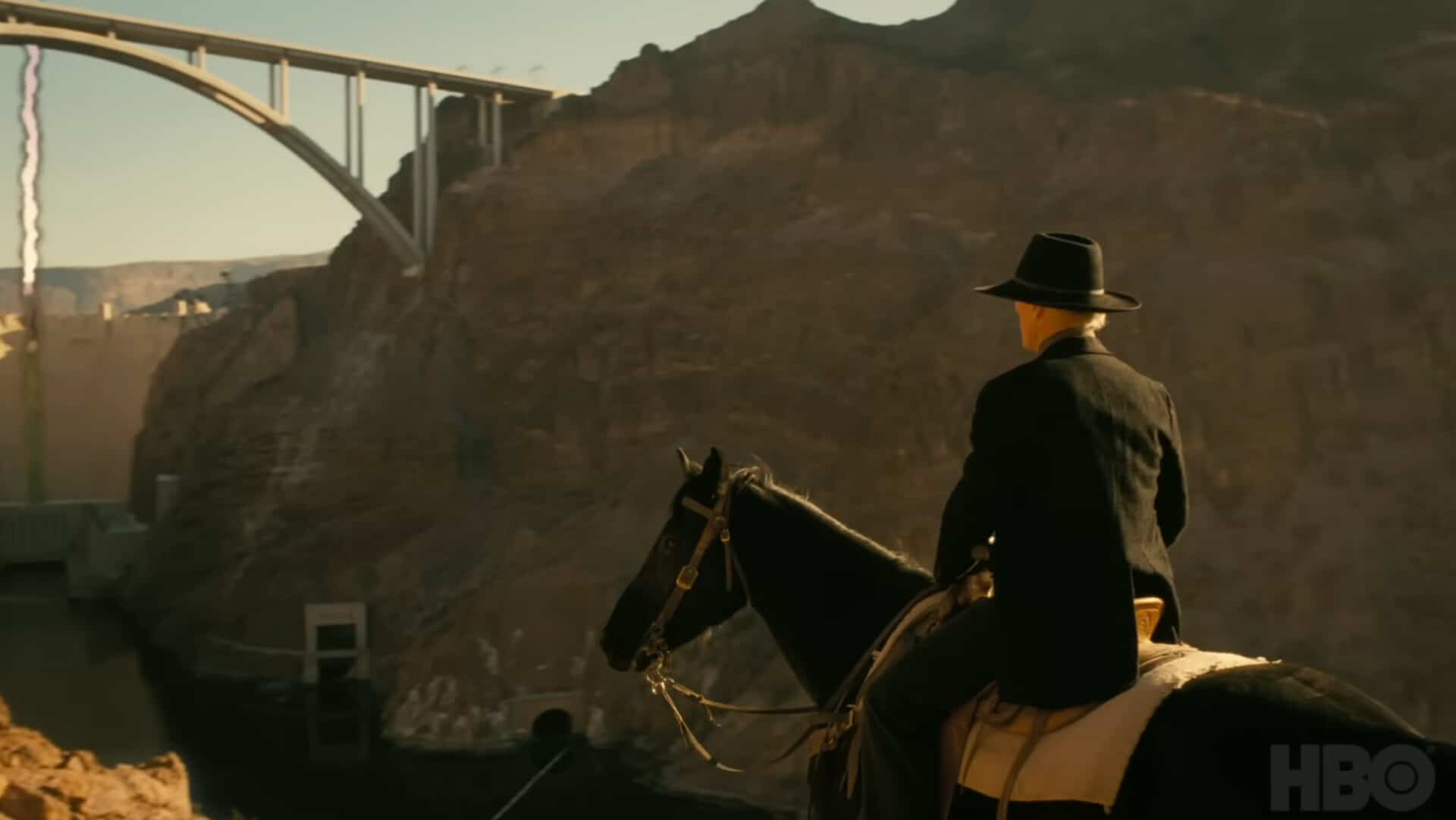
The choice of the Hoover Dam feels oddly appropriate and resonant for Westworld, a show that is preoccupied with the history and mythology of the American West. According to historian Michael Hiltzik, the construction of the Hoover Dam represented “the dividing line in the American political philosophy from rugged individualism.” In historical, if not geographical, terms, there is a solid argument that the Hoover Dam marked the end of the traditional myth of the American West.
The season 4 premiere is saturated with imagery anchored in the 1920s and 1930s that suggests Westworld is pushing beyond the boundaries of the old frontier. It marks a stark departure from the Old West aesthetic that defined so much of the show during its first two seasons, hinting that the show’s internal frame of reference might be lurching forward through American history.
Caleb (Aaron Paul) is reintroduced as a laborer working on tall buildings, and he even stops for lunch atop a skyscraper, evoking one of the most famous photos of the Great Depression. Towards the end of the episode, Christina (Evan Rachel Wood) witnesses Peter Myers (Aaron Stanford) throwing himself to his death from the top of a building, “one enduring image” of the Wall Street Crash, which led into the Great Depression. There are hints of a gangster variant theme park yet to come.
As Westworld likes to remind viewers by having composer Ramin Djawadi rework and reorchestrate pop music standards, the texture might change, but the tune remains the same. William is ultimately conducting the same sort of land grab that defined the American West, with the purchase of the Hoover Dam serving as the final move in whatever gambit he is running. William is still a western villain, even if he’s drawing more from Hell or Highwater than Once Upon a Time in the West.
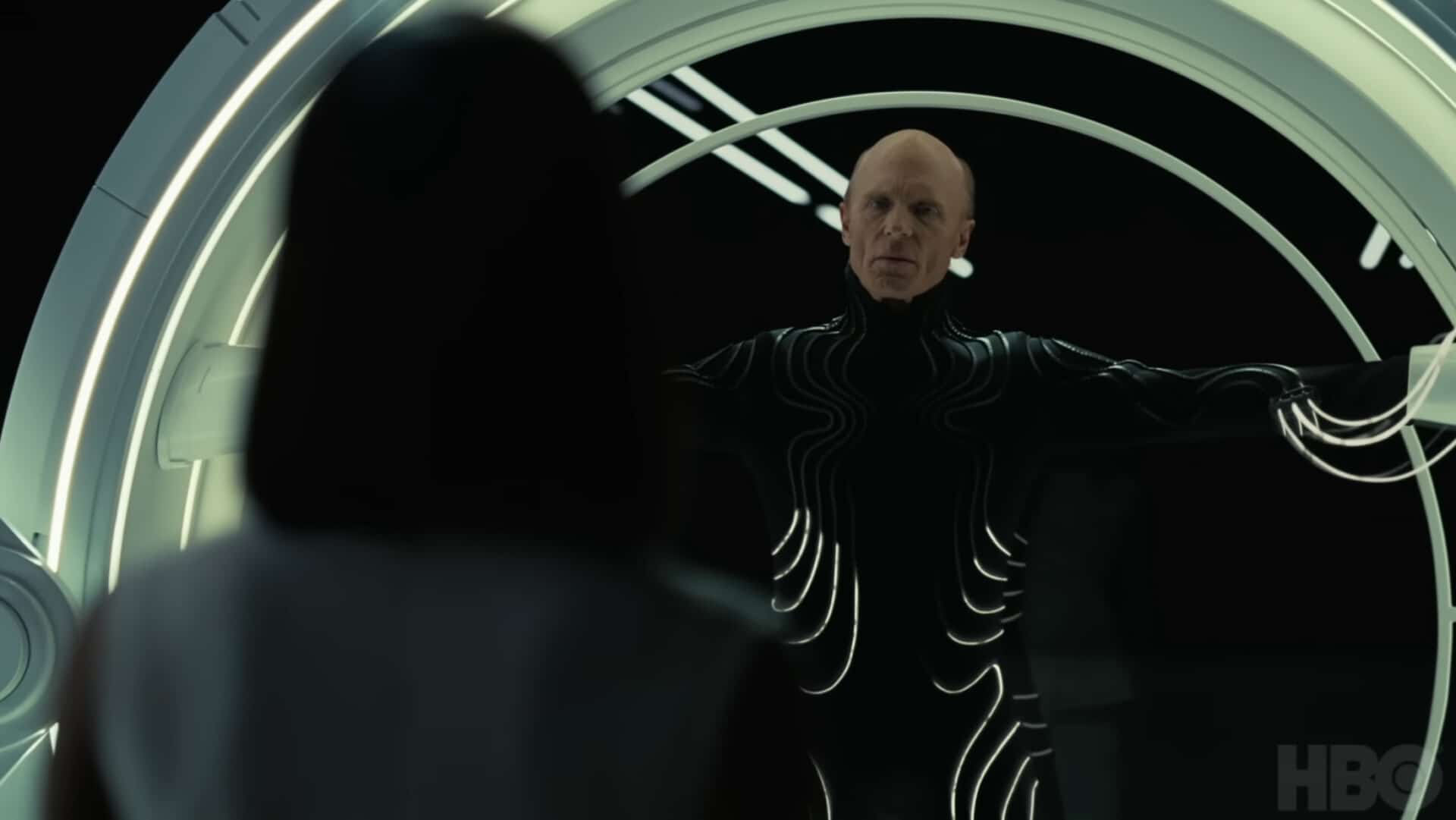
Naturally, William finds himself dealing with the current owners of the Hoover Dam, who are ruthless capitalists themselves. “I don’t like it,” complains the front man (Arturo del Puerto) of what William dismisses as “the cartel or whatever the fuck (they’re) calling themselves these days.” “His businesses are legitimate. Why would he need us?” That organization appears to have bought a controlling stake in a lot of Nevada, including Las Vegas itself, historically known as a mob city.
There is something very evocative and effective in all of this, in placing Ed Harris atop the Hoover Dam. In his own way, with a career stretching over decades and including classics like The Right Stuff and The Truman Show, Ed Harris is as much a monument of American culture as the structure William stands upon. Even at 71, with his rugged features and his stony face, Harris almost seems like a feature of this harsh and barren environment.
This opening sequence suggests a battle of wills over the American West. With the transition into the 20th century and in the aftermath of the First World War, the cowboy found himself supplanted in American popular consciousness by the gangster. John McCarty would argue that the gangster film wasn’t an offshoot of the western, but “the heir to it.” Movies like Bonnie and Clyde and the Godfather films cemented this thematic evolution in depictions of the American outlaw.
As such, this relatively short and self-contained sequence sets up a compelling central conflict through nothing more than its iconography. Westworld has always been a show about the struggle between America’s past and its future, about looping patterns of behavior, and the extent to which it is possible to evolve through iteration. There is something powerful in an opening act that essentially pits an aging cowboy against more modern gangsters for the fate of the American West.
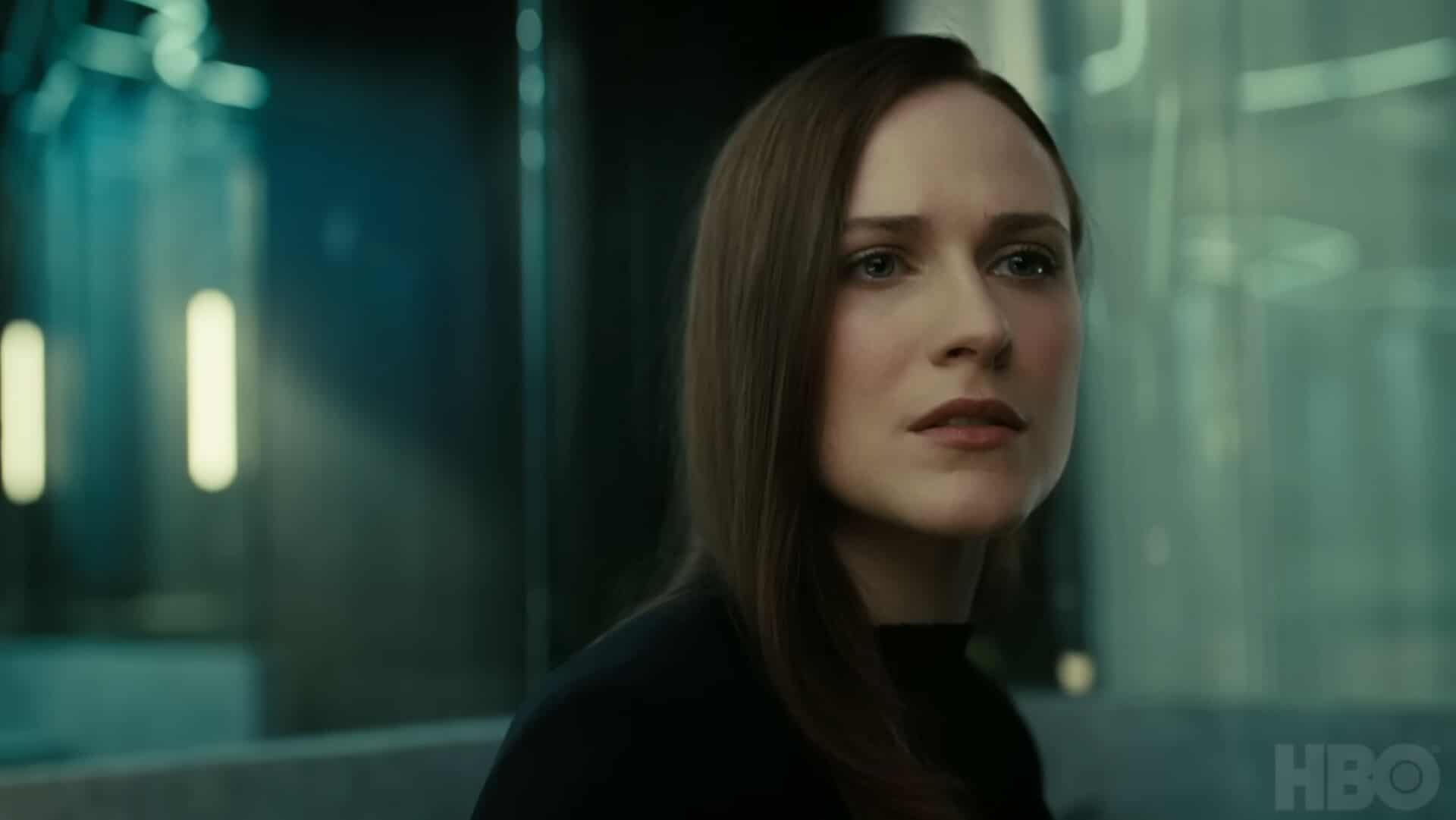
That said, there is a grim punchline that the cowboy and the gangsters are really not so different from one another. They are both ultimately expressions of capitalism in its purest form. When he is told that the Hoover Dam — one of the greatest feats of public engineering in American history — is not for sale, William simply replies, “This is America. Everything here is for sale.” There’s something darkly hilarious in the imagery of gangsters who carry guns to lavish offices with nice pencil holders.
The rest of the episode returns to familiar Westworld themes, approached with the ambiguity that one might expect early in the season. “Setups are just so awkward,” complains Christina at one point, in a fairly winking line. The first season had a strong thematic and narrative arc, and the underrated second season was a fascinating unraveling of that arc. The third season pushed Westworld outside of the eponymous theme park, and the show struggled to define its identity.
To a certain extent, that struggle continues into the fourth season premiere. After all, even that introductory sequence seems to ask what Westworld is about if it is not about cowboys in a cool theme park recreation of the American West. The show seems eager to move past that, chronologically and thematically. “Enough with the cowboy shit,” complains Caleb’s wife, Uwade (Nozipho McLean). However, Westworld still needs to define what comes after “the cowboy shit.”
This tension simmers through into the episode, which rejoins Caleb seven years after the events of the previous season. Those events included a brutal social revolution, intended to free both humanity and the hosts from the sinister influence of Engerraund Serac (Vincent Cassel). Perhaps the grimmest and most realistic aspect of the season premiere is the implication that nothing much has actually changed as a result of that revolution.
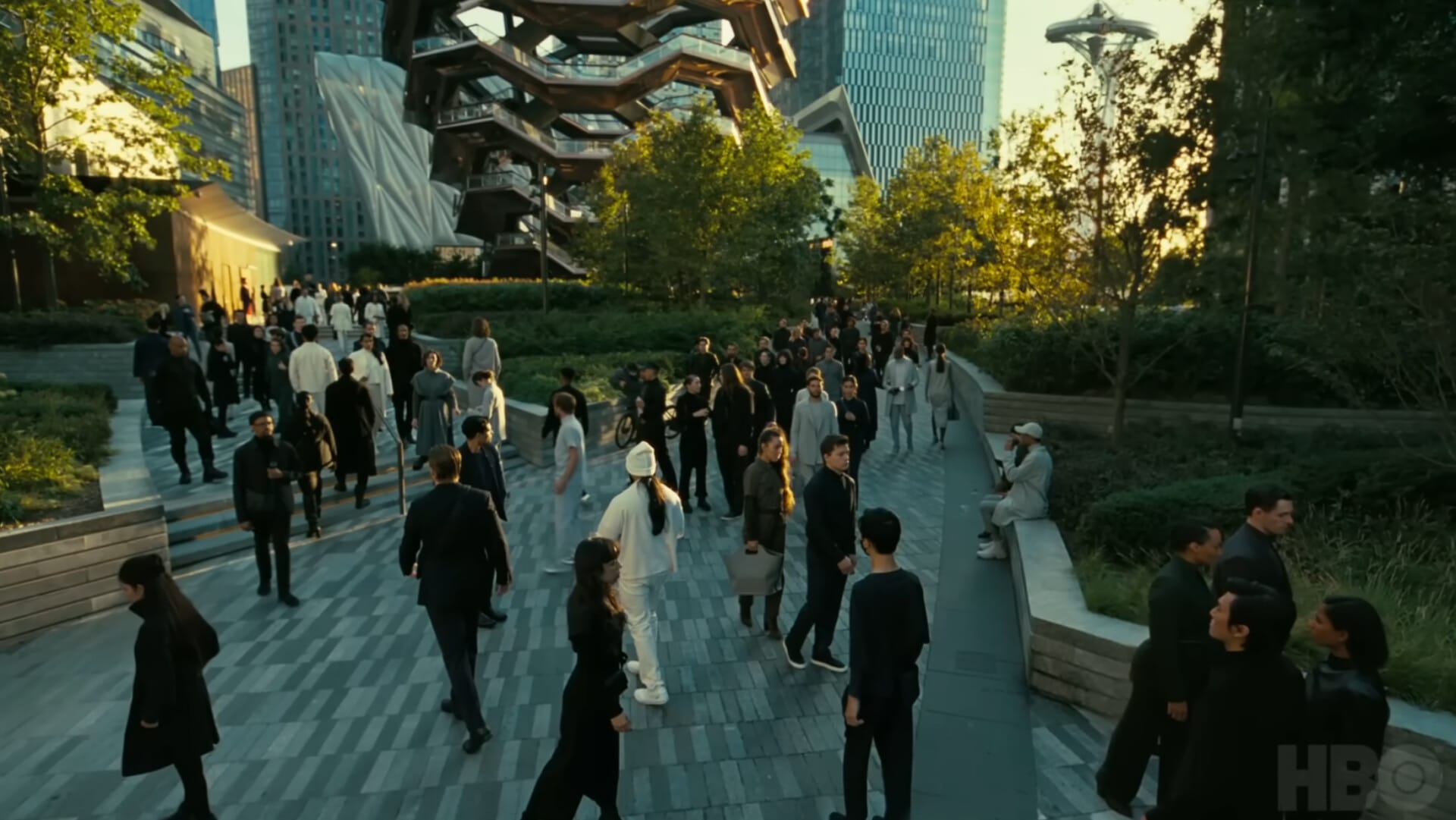
Caleb’s co-worker Jo (La’Charles Trask) doesn’t seem particularly convinced that anything is substantively different. “At least the riots ensured our job security,” he muses. When Caleb presses him, he challenges, “Has your life changed since they destroyed those machines?” Series co-creator Jonathan Nolan has acknowledged that the protests were inspired by the civil protests in Hong Kong, but they took on additional resonance with the protests against racism that happened shortly after broadcast.
The first and second seasons of Westworld were messy and violent stories of revolution. They arguably resonated with something in pop culture, simmering through other contemporary shows and films like Mr. Robot, The Girl with All the Gifts, and Ex Machina. These were all stories about challenges to the existing social order that imagined radical change was possible, even if it would inevitably be brutal and horrific.
In contrast, the season 4 premiere of Westworld seems more resigned to inevitability. It is arguably the product of a show that exists half a decade removed from that first season, having witnessed the extent to which even massive movements and protests can struggle to effect meaningful change. Those protests in Hong Kong have just been met with more state violence. Attempts to combat systemic ingrained racism in the United States have not achieved enough.
“I want to write a new story,” Christina muses towards the end of the episode. “I want a story with a happy ending.” It’s a challenge, both for Westworld itself and for the world beyond it.

